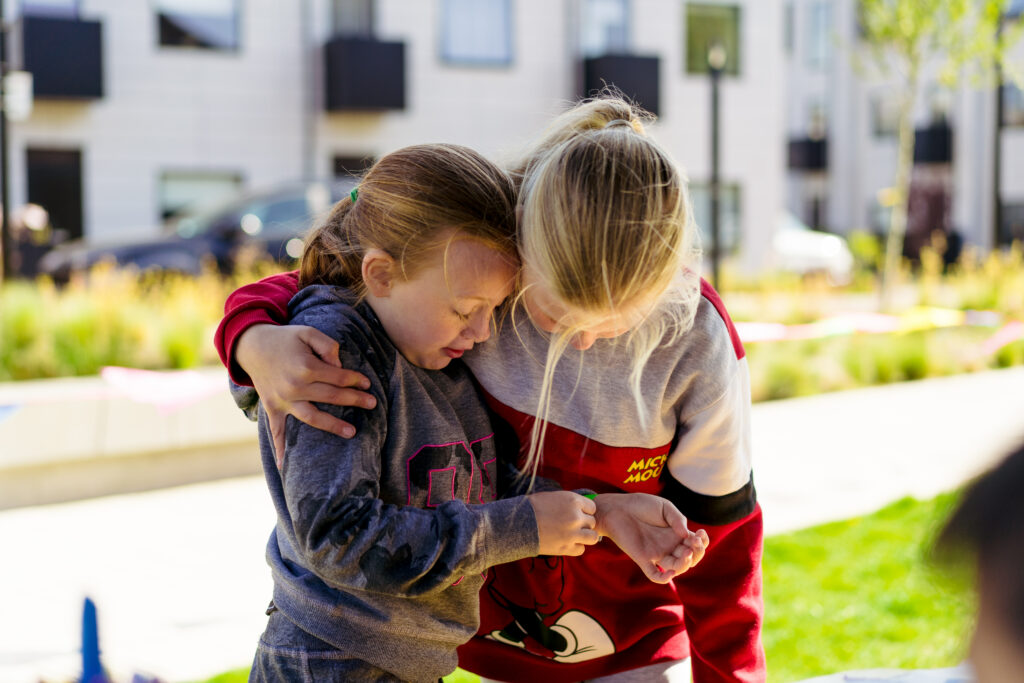
Written by Mark Lawrie, Chief Executive
Mental health conditions are becoming more and more prevalent in children and young people, with the World Health Organisation estimating that 10-20% of all children and adolescents experience a mental disorder at some point in their lives. The theme for this year’s Children’s Mental Health Week is Let’s Connect, a message that is about making meaningful connections for all – during the week itself, and beyond.
It’s a theme that remains incredibly pertinent two years on from the height of lockdown and the Coronavirus pandemic. Sadly, while on the surface society has continued to open up and regain a sense of normality, for many people – and many young people especially – the lasting impact of lockdown remains. For children and young people forced to spend some of the formative years of their life living in isolation, without the normal support network of peers, friends and teachers, these have been immensely troubling times, times that risk leaving an indelible mark on the mental health and wellbeing of a whole generation. It’s widely understood that people thrive in communities, and this connection is vital for our wellbeing. For too many young people, the lived experience of being deprived of that connection continues to have a detrimental effect.
For young people in underserved communities this impact is particularly acute. During lockdown, these young people were less likely to have adequate green space, such as a garden or park, to exercise or safely socialise in. Many were forced to live in cramped conditions, denied privacy or space to study or relax, and too often faced with challenging circumstances at home, from stress, to financial hardship to substance abuse. Without having the right support in place, it should come as no surprise that some of these young people have struggled to ‘bounce back’, especially as these same families now find themselves at the sharp end of a growing cost of living crisis.
Healthy connections – to family, friends and others – are so important for our mental health and our sense of wellbeing. And we know that sport and physical activity can be a fantastic way to build and maintain those connections. Participating in sport can help to improve physical health, increase self-confidence, and provide a sense of belonging. It can also help to reduce stress and anxiety, improve sleep quality, and reduce the risk of depression.
With strong evidence that regular participation in sport and physical activity has measurable benefits for mental health and wellbeing, it is a real challenge that many families in the lowest income bracket have just £3.65 to spend on leisure per week, leaving them priced out of many traditional sport and recreational offers. The end result is that fewer children and young people from low-income families participate in sport and physical activity, they miss out on the chance to make connections and thrive, and this contributes to the higher risk of them developing mental health conditions at an early age.
Alongside the clear link between physical activity and better mental health and the growing evidence that sport and exercise can help to prevent and reduce the symptoms of mental health conditions in children and young people, the other benefits that being active offers include the development of important skills such as teamwork, communication, and resilience, which can help children and young people to cope with any future mental health problems. Perhaps most importantly, sport and physical activity – especially of the kind delivered through our Doorstep Sport model – offers young people the chance to socialise and build meaningful relationships with their peers and with trusted adults who can support and mentor them through the challenges they face. In addition to opportunities for participation through Doorstep Sport, many of our network of locally trusted organisations provide targeted interventions and peer mentoring for young people, so they are able to enjoy the benefits of taking part in sport and physical activity as a way of improving their mental health and aiding their recovery. Those with lived experiences of recovering from poor mental health and wellbeing are supported to become peer mentors. That’s why the everyday work of our network of trusted organisations, at the heart of their local communities, is so important.
StreetGames believe that access to sport and its benefits is a right and not a privilege. Through our core Doorstep Sport approach and innovative, sector-leading programmes, we are breaking down traditional barriers to accessing physical activity and supporting young people living in underserved communities to lead healthier, happier lives. The impact is clear, with data showing Doorstep Sport participants scoring above the national average for life satisfaction, overall happiness and feeling worthwhile. Doorstep Sport participants also score above the national average for social trust and belonging, and are in line with the national average for self-efficacy. If we want to turn more young people’s lives around for the better and begin to tackle the persistent inequalities in sports access, a Doorstep Sport offer in every underserved community is a great place to start.

